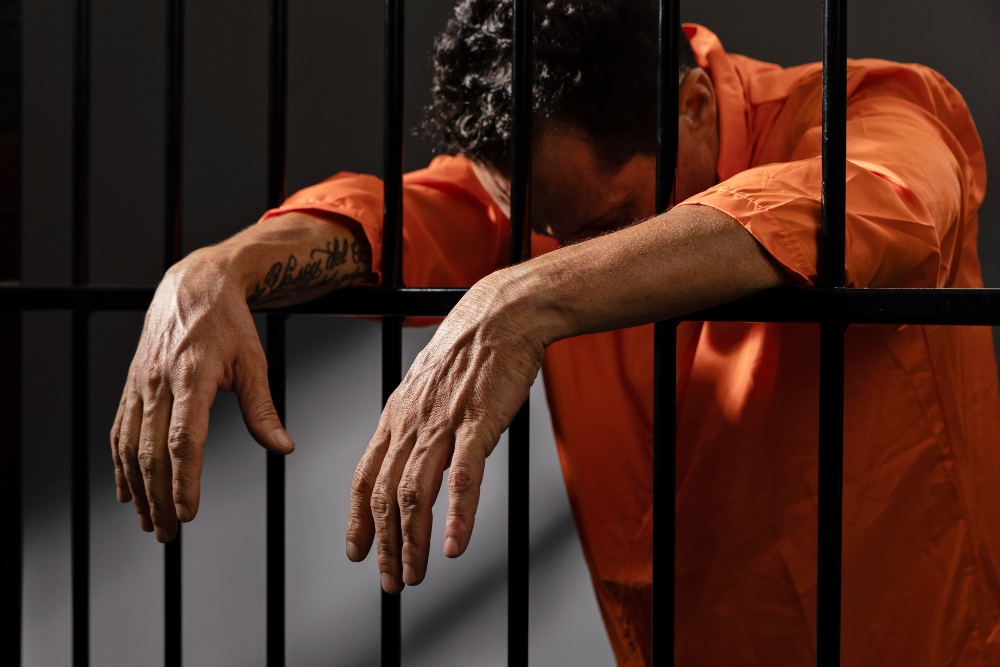
You can go to jail for knowingly making false accusations or committing perjury in Texas. It is against the law to lie to police or court officials in Texas. In fact, intentionally making false statements to law enforcement officers in Texas is a Class B misdemeanor. If convicted of making false statements, you can land in jail for 180 days and be fined $2,000. Giving false testimony in court, also known as aggravated perjury, is a felony of the third degree punishable by 2 to 10 years in prison and up to $10,000 in fines.
To be convicted of making false accusations to law enforcement or of perjury, you must intend to deceive and know that what you are saying is false. Making knowingly false statements is different than giving information to police that turns out to be inaccurate. Many people make statements to police that turn out not to be entirely accurate as more facts come to light. In many cases, correcting a false statement in a timely manner is a valid defense against criminal charges.
If you have gotten yourself into a bind by making false accusations in a criminal matter in the Austin area, you need legal representation. If you have been falsely accused of committing a crime by someone making false allegations, you need the help of a reputable criminal defense lawyer to fight for justice for you. A criminal defense attorney with Minton, Bassett, Flores & Carsey, P.C., can help you evaluate your legal options and defend your rights if you are facing criminal charges in Travis County involving false allegations.
We firmly believe in the right of every individual accused of a crime or facing false allegations deserves to have a robust defense. Our team of highly skilled Austin criminal defense attorneys will do everything within our power to achieve the most favorable resolution of the charges you face. We have successfully represented clients from Central Texas since 1963 and can put our expertise and resources to work for you.
Contact our legal office today at (512) 476-4873 or fill out our online form for a confidential consultation with one of our dedicated criminal defense attorneys.
Why Do Individuals Tend To Provide False Information to the Police?
Anyone can make a false step while under questioning by police or facing the threat of arrest or prison. It’s not that unusual for people who are under pressure to give misinformation to the police or in court to protect themselves, a family member, or another loved one.
An individual involved in a dispute might make false accusations about their adversary. Some people will tell falsehoods to steer police toward another person in the investigation of a crime. Some people make false accusations or spread misinformation when telling the truth would actually help them more.
When the truth may be incriminating, the best thing to do is to remain silent rather than make false statements. It is your Constitutional right to remain silent so as not to incriminate yourself!
Our objective is to keep you from going to jail or suffering other penalties if you have been charged with providing false information to the police or the courts. The sooner we begin representing you, the more effective our representation can be.
Texas Penalties for False Allegations
Title 8, Chapter 37 of the Texas Penal Code addresses Perjury and Other Falsification.
Perjury is making a false statement under oath or swearing to the truth of a false statement previously made with the intent to deceive and with knowledge of the statement’s meaning.
The offense constitutes aggravated perjury. It is a felony punishable upon conviction by up to 10 years in prison and $10,000 in fines if the statement:
- Occurs during or in connection with an official proceeding, such as a trial, and
- Is material to the outcome of the court proceeding.
In other cases, perjury is a Class A misdemeanor. If a person is found guilty of misdemeanor perjury, he or she may be sentenced to 180 days in county jail and a fine of up to $4,000, or both.
You should contact a criminal defense attorney at Minton, Bassett, Flores & Carsey, P.C. if you are facing charges of perjury in Austin.
Impact of False Accusations or False Statements
Making a false report to a peace officer or others in law enforcement is to knowingly make a false statement that is material to a criminal investigation with the intent to deceive. You can be prosecuted for making a false statement to the police. A conviction can lead to six months in jail.
Perjury and making false statements to police are crimes because they cause damage to our criminal justice system. They can be costly in terms of wasting police time investigating false accusations and leading to false convictions, depriving innocent people of their liberty, and eroding public faith in the criminal justice system.
False accusations about an individual’s conduct, such as falsely accusing them of a crime, can permanently stain their reputation and have adverse legal and financial impacts on their lives. This could provide a reason for them to pursue a defamation lawsuit against the false accuser and to demand compensation for the harm they have unjustly suffered.
Get in Contact With a Criminal Lawyer Near You
In many cases, you can stop false statements or accusations you have made from damaging your life and others by admitting your mistake and setting the record straight. A criminal defense attorney with Minton, Bassett, Flores & Carsey, P.C. can help you develop a solid defense against charges of making false accusations and resolve the charges with the least adverse impact on your life. The time to act is now.
In Austin or greater Travis County, call our office at (512) 476-4873 or fill out our online form to speak with a criminal defense lawyer immediately. Our knowledgeable attorneys are ready to take your call anytime.




